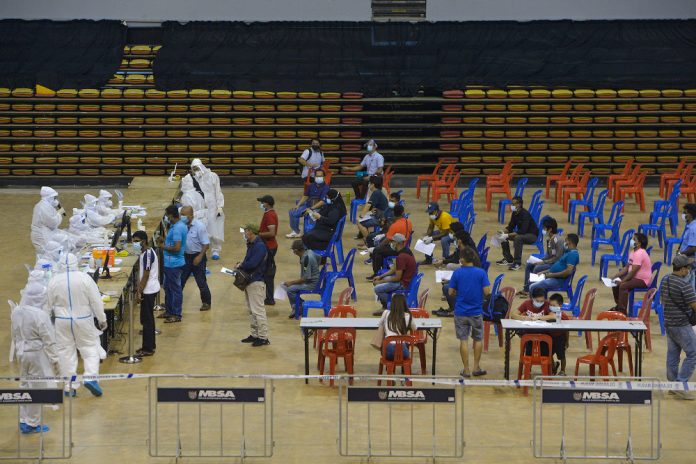Subscribe to our Telegram channel for the latest updates on news you need to know.
KUALA LUMPUR, Feb 10 — Four in ten Malaysians surveyed said they “approved” of the government’s response to Covid-19 so far at 40.2 per cent, compared to 27.4 per cent who “disapproved” of it.
In the report released by Singapore-based Asean Studies Centre at ISEAS-Yusof Ishak Institute, most of those who “disapproved” or “strongly disapproved” of Putrajaya’s response said politicians and civil servants “should observe public health measures, instead of flouting them”.
“Respondents from Malaysia (69.7 per cent) are most critical of their politicians and public servants in terms of observing public health measures,” the report said today, when asking those who “disapproved” on what Putrajaya can do better on Covid-19.
Besides that, over half of Malaysian respondents at 51.5 per cent also agreed that the government must offer better financial relief and subsidies to citizens impacted economically by the Covid-19 pandemic.
This was followed by “invest in early warning systems for pandemic outbreak and research and development for virus testing and vaccine development” at 33.3 per cent, and “implement public health measures such as social distancing and mask wearing” at 30.3 per cent.
Just 15.2 per cent proposed for Putrajaya to “encourage more scientists and medical doctors to contribute to public policy discussions and heed their advice”.

When asked why Malaysian respondents had approved of Putrajaya’s response, a whopping 89.1 per cent said it “has adequately implemented public health measures to mitigate the pandemic”.
This comes as Malaysians continue their criticism over the perceived double standards over how politicians can get away with not obeying Covid-19 restrictions or receive preferential treatment, compared to normal citizens.
Most recently, Putrajaya has allowed ministers returning from official duties overseas to be exempted from a 10-day quarantine, which was shortened to just three days.
A couple of weeks ago, federal and state lawmakers are also allowed to cross borders for official duties, even as the country is currently under a new movement control order dubbed MCO 2.0.
The survey had involved 1,032 respondents, with 11.3 per cent of them from Malaysia. Most of the respondents were academics, from think tanks, or research institutions.
Established in 1968, the ISEAS-Yusof Ishak Institute is a regional centre dedicated to the study of socio-political, security, and economic trends and developments in Southeast Asia and its wider geostrategic and economic environment.



